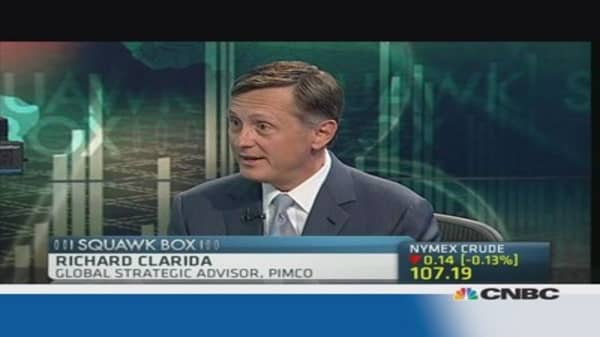But weakness in key exporters capped gains on the index. Construction equipment makers Kubota and Komatsu lost 3 and 2.4 percent, respectively.
Sydney slips 0.8%
A rally in Australian gold miners helped the benchmark index cap heavier losses following extended gains in gold prices. Newcrest Mining rose over 4 percent and Kingsgate Consolidated surged 8 percent.
Australia New Zealand Banking tumbled over 3 percent despite posting an 11 percent rise in cash profit for the nine months through June, which it said is in line with internal forecasts. Other banks fell on ANZ's sudden decline with Westpac lower by 1 percent.
Global miner BHP Billiton fell 1.4 percent on charges of anti-corruption enforcement action in the U.S.
(Watch now: Why BHP is still the top mining pick)
Energy producer Santos rallied 3.8 percent after reporting a 3 percent rise in first-half net profit.
Kospi down 0.2%
South Korea's benchmark index played catch up with the region after being shut on Thursday for a public holiday.
Technology stocks weighed on the index with a 2 percent fall in LG Electronics while Samsung Electronics slipped 0.4 percent following an earlier 1.3 percent decline.
Auto giant Hyundai Motor rallied 1.5 percent after President Yoon Gap-han vowed to resume negotiations with labor unions to resolve a wage dispute.
Shippers rallied on optimism of an improvement in inter-Korean relations after Pyongyang Seoul agreed to re-open the Kaesong industrial factory. Hyundai Merchant Marine climbed 7 percent and Hanjin Shipping added 5 percent.
— By CNBC.com's Nyshka Chandran. Follow her on Twitter @NyshkaCNBC



